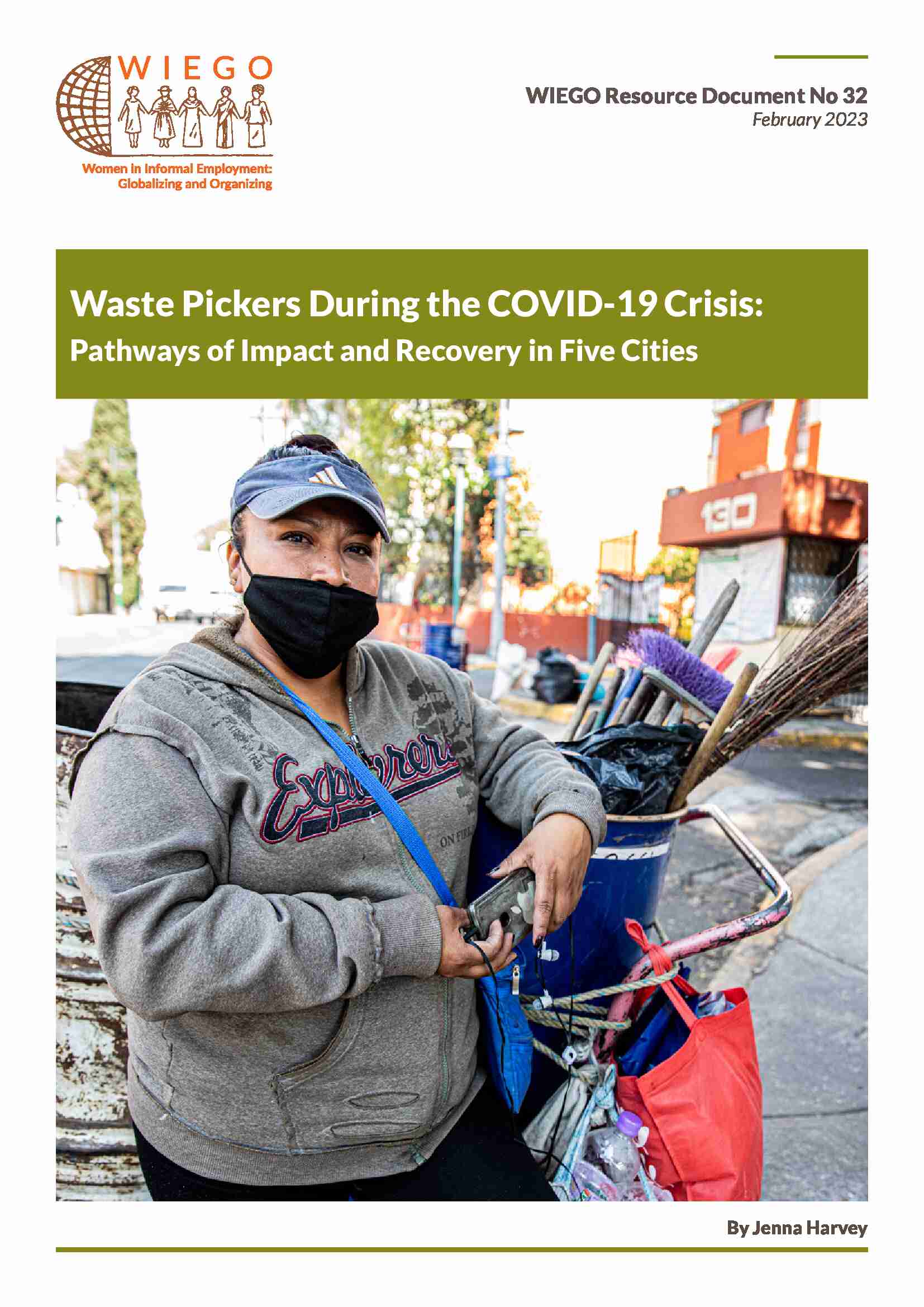Waste Pickers During the COVID-19 Crisis: Pathways of Impact and Recovery in Five Cities
Key Findings
A year after the onset of the COVID-19 pandemic, market shifts had exacerbated waste pickers’ structural disadvantages, and their earnings had not recovered to pre-pandemic levels:
- By mid-2021, the vast majority – 89% – of waste pickers were back at work, but monthly earnings lagged behind at 78% of pre-COVID-19 levels. Earnings recovery was gendered: men waste pickers had recovered 92% of pre-COVID earnings, compared to 67% for women.
- By mid-2021 market shifts – particularly decreased supply – had worsened over the previous year, with 70% of waste pickers reporting that access to waste had become more difficult than in mid-2020. Increased competition and physical barriers to accessing waste supply were becoming entrenched, and waste pickers expressed concern over the long-term viability of their livelihoods. Stigma, discrimination and harassment from authorities exacerbated these challenges.The pandemic increased waste pickers’ existing occupational health and safety risks, and waste pickers organized to equip themselves with personal protective equipment (PPE) in the absence of government support:
- In mid-2021, 31% of waste pickers reported heavier physical labour and 41% reported an increase in exposure to medical waste compared to pre-crisis conditions.
- 98% of waste pickers reported using PPE in mid-2021, and 77% of these respondents reported having purchased the equipment themselves.Earnings losses exacerbated existing vulnerabilities for waste pickers. In the absence of adequate government relief coverage, workers experienced increasing food insecurity and a reliance on asset-depleting coping strategies:
- In mid-2021, 62% of waste pickers had received no food relief, and 65% had received no cash relief from their governments.
- Indicators of food insecurity – adult and child hunger, and changes to diet – were higher for waste pickers than for any other sector in the COVID-19 Crisis and the Informal Economy Study. In mid-2021, 64% of respondents reported skipping meals or eating a low variety of foods in the past month.
- To cope with earnings losses and lack of relief, some waste pickers relied on asset-depleting strategies: 49% of waste pickers borrowed money and 33% drew down savings to cope. Of those who had drawn down savings since the start of the pandemic, 80% reported an inability to replace these.
View list of all: Resource Documents

